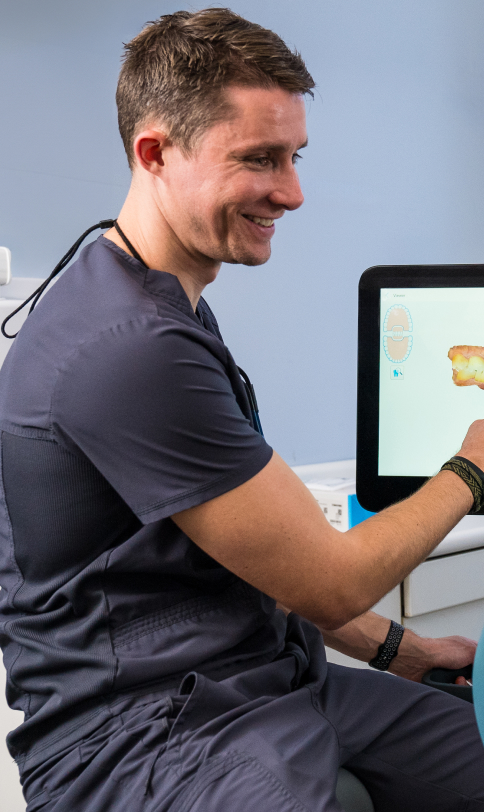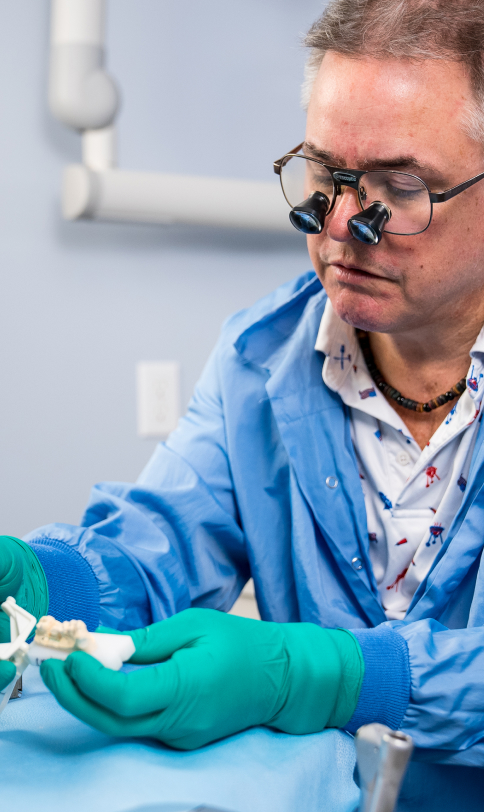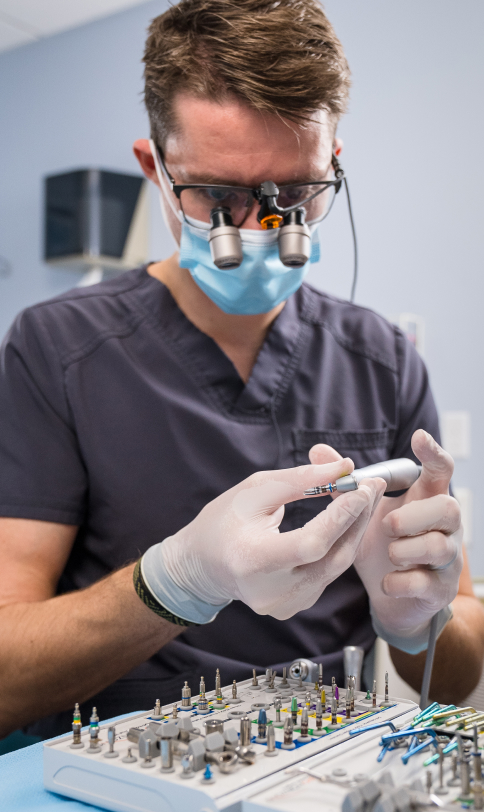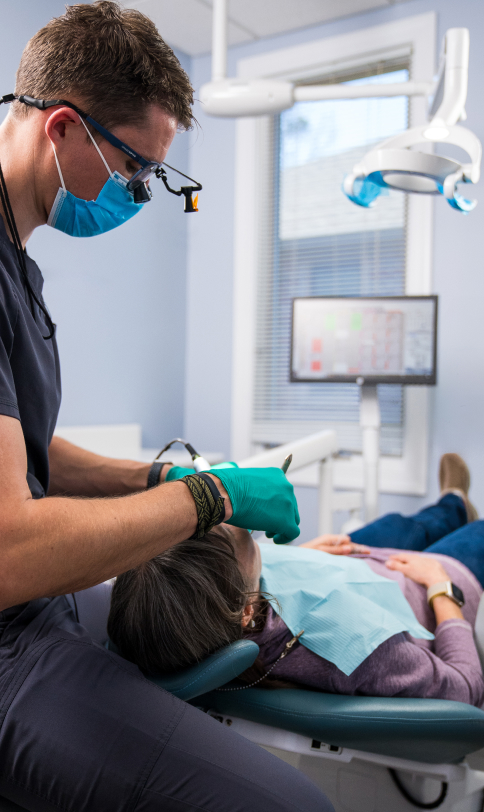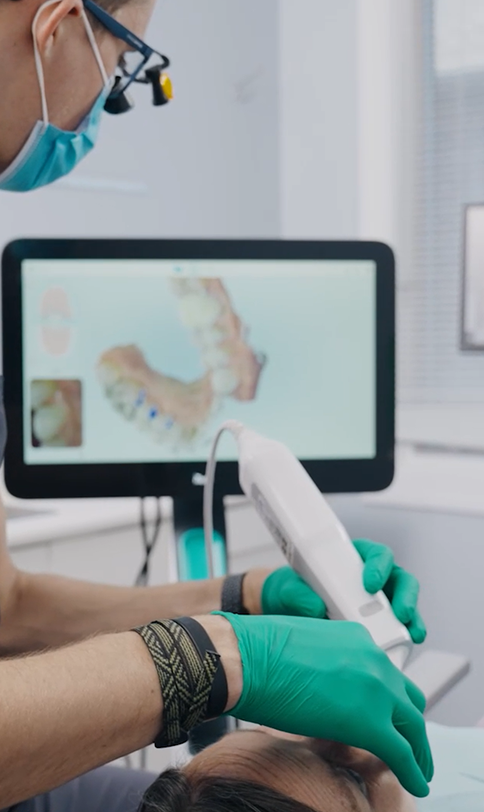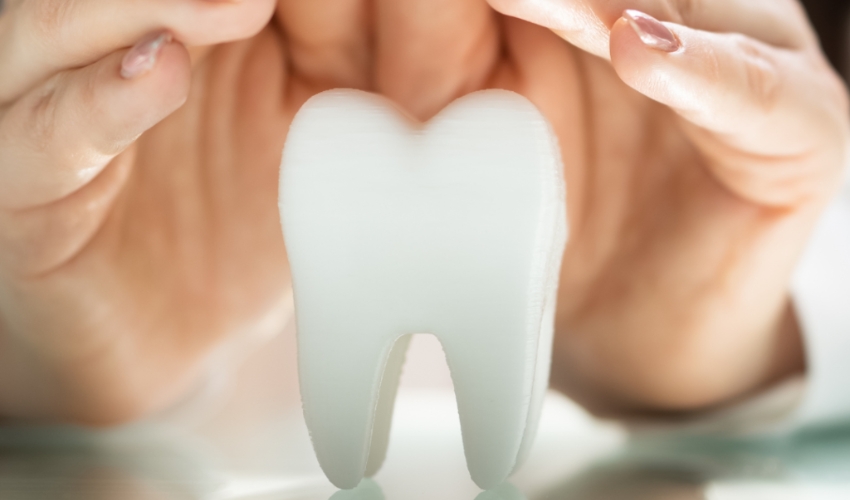
Tooth Extraction Aftercare: Essential Tips for Recovery
By Legacy Dental
Tooth Extraction Aftercare: Preparing for tooth extraction recovery starts before the procedure itself. Your dentist will provide specific instructions tailored to your situation. However, there are some universal tips to keep in mind.
Stock Up on Supplies
Having the right supplies at home will make your recovery smoother. Stock up on soft foods like yogurt, applesauce, and mashed potatoes. You’ll also need gauze pads, ice packs, and any prescribed medications. Comfortable pillows to keep your head elevated will be helpful.
Plan for Rest
Taking it easy for the first 24-48 hours is crucial. Arrange your schedule to allow for plenty of rest. Avoid physical activities and plan to stay home. Prepare a cozy recovery space with entertainment options like books, movies, or TV shows.
Immediate Aftercare
The first 24 hours after your tooth extraction are critical for proper healing. Here’s what you need to focus on to ensure a smooth start to your recovery.
Managing Bleeding
Some bleeding is normal after tooth extraction. Bite down gently on the gauze pad placed by your dentist, and change it as needed. If bleeding persists, you can use a damp tea bag. The tannic acid in tea helps blood clotting.
Controlling Swelling
Swelling is a natural part of the healing process. During the first 24 hours, apply ice packs to your cheek for 20-minute intervals. This helps reduce swelling and provides pain relief. Keep your head elevated, even when sleeping, to minimize swelling.
Pain Management
Your dentist will likely prescribe pain medication or recommend over-the-counter options. Take them as directed to stay ahead of the pain. Avoid aspirin, as it can increase bleeding.
Diet and Nutrition
What you eat after your tooth extraction can significantly impact your recovery. Following a soft food diet is essential to avoid irritation and promote healing.
Recommended Foods
Stick to soft, calm, and nutritious foods. Smoothies, soups, and broths are excellent options. Yogurt and pudding can also be soothing. Ensure your diet is balanced and includes sufficient protein, vitamins, and minerals for healing.
Foods to Avoid
Avoid hard, crunchy, or chewy foods. Spicy foods can also irritate the extraction site. Avoid nuts, chips, and anything with tiny seeds that could get lodged in the wound. Refrain from using straws, as the suction can dislodge the clot and cause a dry socket.
Oral Hygiene
Maintaining oral hygiene is crucial, even after a tooth extraction. However, you must adjust your routine to protect the extraction site.
Gentle Cleaning
Brush your teeth gently, avoiding the extraction site for the first few days. Use a soft-bristled toothbrush and be cautious around the area. Rinse your mouth with warm salt water after meals to keep the area clean without disturbing the clot.
Avoiding Mouthwash
Avoid commercial mouthwash for the first week, as it can be too harsh for the extraction site. Warm salt water rinses are sufficient to maintain cleanliness and aid in healing.
Activity and Rest
Balancing rest and gentle activity is vital for a smooth recovery. Too much activity too soon can hinder healing, while too much rest can lead to stiffness and discomfort.
Taking It Easy
Rest is essential during the first 48 hours. Avoid physical exertion, bending, or lifting heavy objects. Activities that increase your heart rate can cause increased bleeding and swelling.
Gradual Return to Normalcy
After the initial rest period, gradually resume light activities. Short walks and gentle movements are beneficial. Listen to your body and avoid overexertion. Gradually increase your activity level as you feel more comfortable.
Warning Signs
While most tooth extractions heal without issues, being aware of potential complications is essential. Knowing the warning signs can help you seek prompt medical attention if needed.
Signs of Infection
Watch for signs of infection, such as increased pain, swelling, or a foul taste in your mouth. Fever and persistent bleeding are also red flags. Contact your dentist immediately if you notice these symptoms.
Dry Socket
A dry socket occurs when the blood clot at the extraction site dislodges or dissolves. It can cause severe pain and delay healing. To avoid dry sockets, follow your dentist’s instructions carefully and avoid using straws, smoking, or vigorous rinsing.
Long-Term Care
Proper aftercare extends beyond the first few days. Ensuring long-term care will support full healing and prevent complications.
Follow-Up Appointments
Attend all scheduled follow-up appointments with your dentist. They will monitor your healing progress and address any concerns. Follow their advice for continued care and maintenance.
Oral Health Maintenance
Once healed, maintain good oral hygiene practices. Brush and floss regularly, and visit your dentist for routine check-ups. Staying proactive with your oral health will help prevent future issues.
Special Considerations
Every tooth extraction is unique, and certain situations may require special considerations. Being aware of these can help you tailor your recovery plan.
Wisdom Teeth
Wisdom teeth extractions often involve more extensive surgery and recovery time. Follow your dentist’s specific instructions for managing pain and swelling. Rest and a soft food diet are essential.
Multiple Extractions
If you’ve had multiple teeth extracted, your recovery may be more challenging. Take extra care with your diet and activity level. Ensure you have adequate support at home to help with daily tasks.
Medical Conditions
Certain medical conditions, like diabetes or autoimmune disorders, can affect healing. Inform your dentist of any health conditions so they can provide personalized care instructions.
Tooth Extraction Aftercare: Building Healthy Habits
Use your recovery period to build healthier habits that support your overall well-being. This can be an opportunity to improve your lifestyle and oral care routine.
Quitting Smoking
If you smoke, consider using this recovery time to quit. Smoking can impede healing and increase the risk of complications like dry sockets. Seek support from your healthcare provider for smoking cessation resources.
Balanced Diet
Focus on maintaining a balanced diet even after transitioning back to solid foods. Proper nutrition supports healing and overall health. Include plenty of fruits, vegetables, lean proteins, and whole grains.
Hydration
Staying hydrated is crucial for recovery and general health. Drink plenty of water throughout the day. Avoid sugary or caffeinated beverages that can dehydrate you.
For those in need of further guidance or a reliable dental partner, our team is here to help. We are ready to support your dental health journey if you’re looking for a trusted dentist Cary NC. Follow these tips to ensure a smooth recovery and maintain your beautiful smile.



